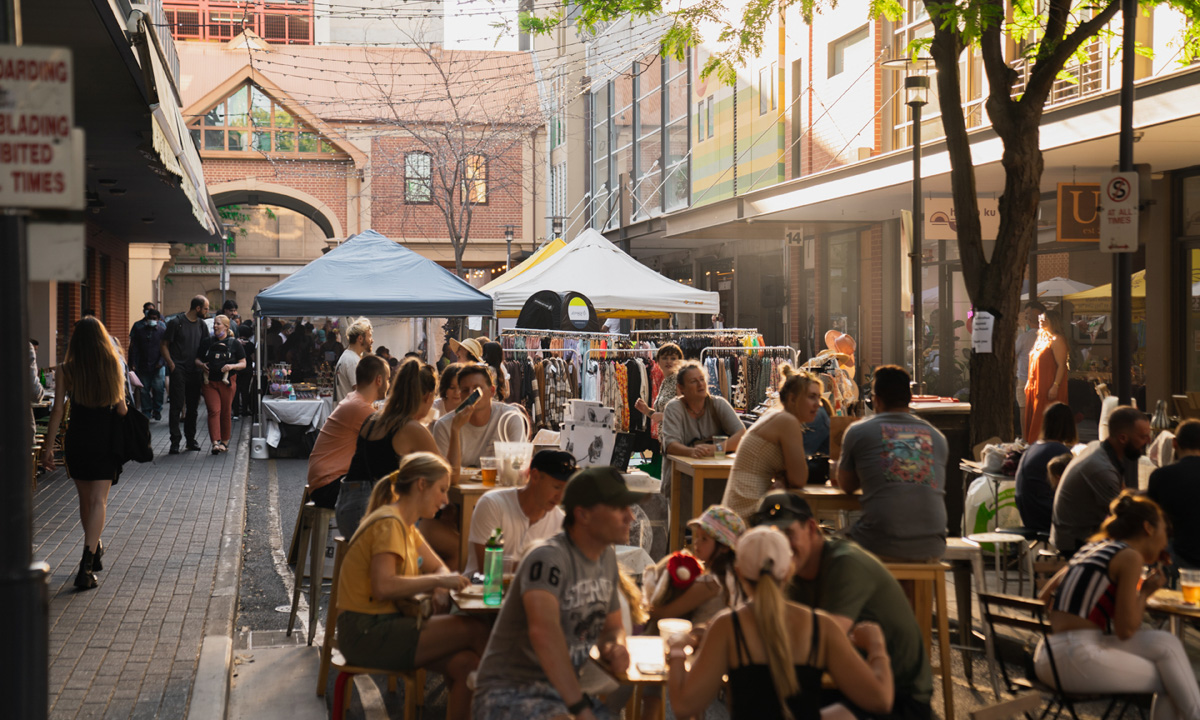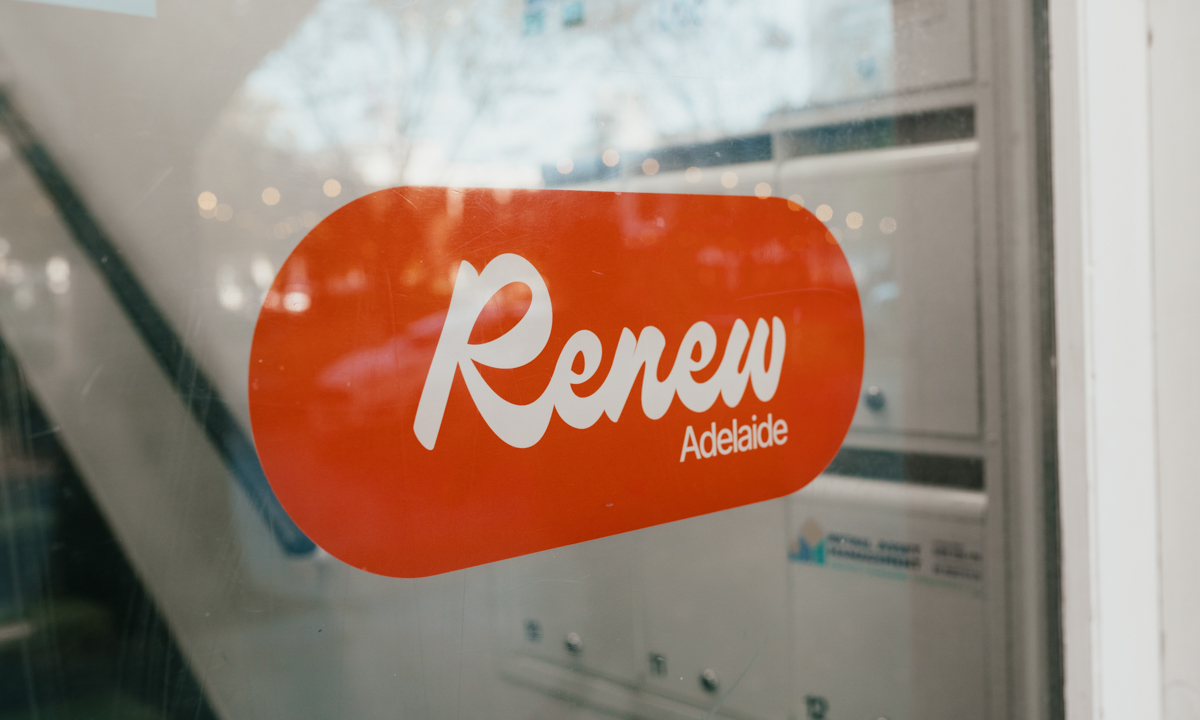Reforms, not handouts, needed to save Adelaide’s nightlife

Insurance rates and giving city visitors a reason to stay longer after shops close are two of the issues being considered by Adelaide City Council following a report into how to help struggling venues and a flagging night-time economy.
A report which explored ways to help rejuvenate Adelaide’s nightlife was last night presented to the council’s City Finance and Governance Committee.
The report’s recommendations were based on feedback from venue owners and operators, musicians and DJs, policymakers, representatives from peak bodies and board members from the city’s Economic Development Agency (AEDA) in a roundtable forum discussing industry challenges.
Lord Mayor Jane Lomax-Smith said the findings pointed to regulatory change as a key way that the city’s nightlife industry could be meaningfully supported.
“One of the things I noticed from all these meetings is they didn’t want a handout,” she said.
“All of them said, ‘if you give us $20,000 it won’t help us in our long-term survival’. They wanted regulatory change, they wanted change in a whole range of regimes because that is where they saw long-term sustainability.”
The report was requested in February after councillors noted the permanent closure of five West End venues between December 2023 to January 2024.
Most closures were due to the increased cost of overheads such as rent and insurance, and a decline in patrons as the cost of living increases.
The committee recommended Lomax-Smith write to the state government and insurance council to discuss making insurance premiums more accessible for night time entertainment venues.
It also recommended the state government be asked to:
- review shop trading hours to enable extended late-night activity in certain periods
- provide about $100,000 in funding to extend a program called Project Night Light that makes venues safer and eliminates harassment
- provide funding to support Renew Adelaide to activate vacant premises
The recommendations now wait for approval at next week’s council meeting.
You might like
The roundtable report said issues affecting the city’s night-time economy were not unique to Adelaide, with IbisWorld data from February 2024 finding the number of nightclubs across Australia decreased by around 25 per cent between 2019/20 and 2022/23.
It also noted that while several nightclubs and bars had closed, there had been new openings this year such as Velvet Underground, Station Arcade and the reopening of Sugar.
Lomax-Smith said nightlife was important to the identity of a city and that a balance between day and night time trade was an important component of discussions.
“It’s unthinkable we don’t have night time activity somewhere like Hindley Street,” she said.
“We cannot live in a capital city and have nothing at night happening, we do have to have the slightly raunchy, slightly risky, slightly noisy activity.”
Councillor Phillip Martin said that part of the challenge was that there were different elements of the night-time economy, such as theatre and live music, that faced separate challenges to the hospitality industry.
“Until we actually put a finger on what it is we’re talking about it’s very hard to identify what to do, other than to ask the Lord Mayor to write to the state government,” he said.
Here are the key areas the council outlined as strategies to support the industry, based on the report.
Eliminating harassment in night-time venues
One of the relief measures raised in discussions was for the council to lobby the state government to incorporate mandated sexual harassment training for all hospitality workers who serve alcohol.
In June, the Malinauskas Government committed to move to mandate sexual harassment training through the RSA and would consult the industry and the broader community on doing so.
This announcement came after Not So Hospitable, founded by Adelaide sexologist and researcher Jamie Bucirde, released a report in May detailing the significance of sexual harassment in Adelaide’s hospitality industry.
Lomax-Smith commended the Not So Hospitable report in last night’s committee meeting.
“It’s pretty shocking the number of venues where young women and young men are being propositioned, touched and actually assaulted,” she said.
In 2023, the council ran a 12-month pilot project called Project Night Light which focussed on staff training and supporting venues to create a culture that promotes respect and safety.
According to their website, the focus of the project was on the staff and patrons of night-time venues including bars, music, creative venues, pubs, and clubs.
Subscribe for updates
The program finished in 2023 but the motion to support the night-life economy includes asking the state government for an estimated $100,000 per annum to extend Project Night Light.

Insurance and tax
The roundtable asked for the council to lobby to have hospitality venues excluded from payroll tax, or for dedicated live music venues to receive tax subsidies to ease the financial burden.
Capping public liability insurance premiums at financially sustainable levels was another change respondents said they’d like to see.
Lomax-Smith said in the meeting that she learned “apparently there’s only one insurer globally and they seem to be benefitting from the lack of competition”. Skyrocketing insurance costs were cited as a key reason for the previous owner of Sugar nightclub selling the venue, and Enigma Bar, among others.

Events and extended trading hours
The roundtable participants highly rated events and activations that bring people into the city and called for trialling event precincts beyond Rundle Street, such as closing the streets for specific activities in Hindley Street West and North Adelaide.
The AEDA commercial events fund, which was controversially cut from the recent council 2024-25 budget, was raised as a way to support the night-time economy in the medium term.
Councillor Mary Couros, who advocated for the events fund to be reinstated to support small festivals that bring visitors into the city, said changing habits have affected the city.
“I really do believe that the only way we can lure people back is by giving them a reason to come into the city,” she said.
The council has said when it prepared the first quarterly review of the 2024-25 financial year it would prioritise reinstating funding to the AEDA commercial events fund.
Extending shop trading hours was also raised as an option, to give people something to do to bridge the time between finishing work and going out in the evenings.
Councillor Martin called the hours between 5 to 8pm the “pre-night-time economy”, while Lomax-Smith agreed there should be a balance between the day and night.

Funding Renew Adelaide to activate vacant spaces
As part of this balance, Lomax-Smith said she felt strongly about activating existing spaces through Renew Adelaide to combat the problem and ensure daytime trade survives.
The Lord Mayor said that while travelling she has seen boarded-up precincts that looked terrible, and didn’t want Hindley Street to go the same way.
“It looks like a war zone during the day, and we don’t want that,” she said.
She encouraged utilising Renew Adelaide because “they’ve got the best property letting part of the city”.
“They’ve got now over 700 business ideas, entrepreneurs and start-ups looking for somewhere to go and we’re only funding them to find 30 new places every year so there’s great scope for more investment there and it will make a great difference to property owners,” she said.






